

| Title | Author | Call# | Book Cover |
|---|---|---|---|
| Exploring Philosophy | Cahn, Steven M. | BD 21 .E96 2012 | 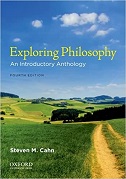 |
| Writing Philosophy: A Student’s Guide to Writing Philosophy Essays | Vaughn, Lewis | B 52.7 .V38 2012 | 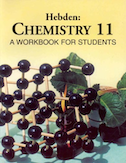 |
| Key Concepts of Philosophy | McQueen, Paddy | B 51 .M38 2010 | 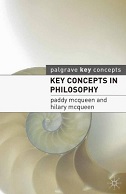 |
| Metaphysics: A Very Short Introduction | Mumford, Stephen | BD 131 .M86 2012 | 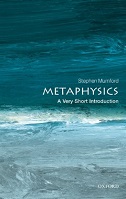 |
| Causation: A Very Short Introduction | Mumford, Stephen | BD 541 .M86 2013 | 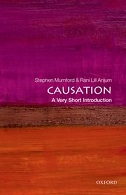 |
| Being and Time | Heidegger, Martin | B 3279 .H48S413 1962 | 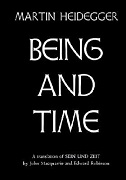 |
| The Metaphysics | Aristotle | B 434 .A5M5 2005 | 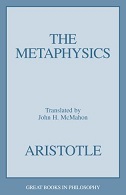 |
| Riddles of Existence | Conee, Earl & Theodore Sider | BD 111 .C6263 2014 | 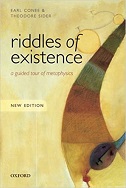 |
| Philosophy: The Quest for Truth | Pojman, Louis P.;Vaughn, Lewis | BD 21 .P48 2012 |  |
| The Fundamentals of Ethics | Shafer-Landau, Russ | BJ 1012 .S584 2021 | 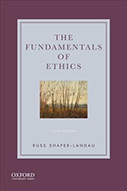 |
| Ethics: A Very Short Introduction | Blackburn, Simon | BJ 1012 .B537 2021 | 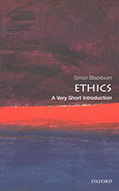 |
| Ethics for a Broken World | Mulgan, Tim | JA 79 .M85 2011 | 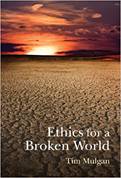 |
| Global Ethics: An Introduction | Widdows, Heather | BJ 1031 .W53 2014 | 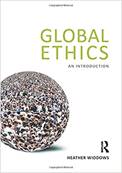 |
| The Ethics of Global Climate Change | Arnold, Denis G. | GE 42 .E844 2011 | 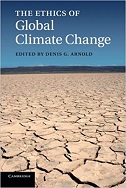 |
| Braiding Wweetgrass: Indigenous Wisdom, Scientific Knowledge and the Teachings of Plants | Kimmerer, Robin Wall | E 98 P5K56 2013 |  |
* Want to reserve one of these titles? Email library@alexandercollege.ca with your student # and the book title.
These e-Books are available in the online library collection. Click the title to access the resource.
Aristotle’s ‘Metaphysics’: A Reader’s Guide
Halper, Edward C. 2012
Neurowaves: Brain, Time, and Consciousness
Northoff, Georg 2023
These handbooks provide easy to digest information and facts about topics covered within philosophy.
The A to Z of Existentialism (2011) by Stephen Michelman
This book affords readers an integrated, critical, and historically-sensitive understanding of existentialism as philosophical movement.
Critical Reasoning & Philosophy has been praised as an innovative and clearly written handbook that teaches new philosophy students how to read, evaluate, and write in a critical manner.
An encyclopedia on ethics, including terms, topics, and concepts.
The Cambridge Dictionary of Philosophy (1995) by Robert Audi
Widely acclaimed as the most authoritative and accessible one-volume dictionary on Philosophy.
The Oxford Dictionary of Philosophy (1996) by by Simon Blackburn
This book can be found in the AC Library under the call number B 41 .B53 1996.
The Historical Dictionary of Metaphysics (2011) by Gary S. Rosenkrantz
This resource offers a comprehensive guide to the many facets of metaphysics through a chronology, an introductory essay, a bibliography, and over 300 cross-referenced dictionary entries on concepts, people, works, and technical terms.
When looking for resources related to PHIL, try some of these keywords in your searching:
Sample search: logic AND human behaviour
* Interested in learning more about using keywords for research? Check out our videos on how to create and search using keywords on our Research Skills page.
Open access resources are resources that are available to everyone for free online. Links here will lead to sites where you can download textbooks or access journals related to Philosophy.
An Introduction to Philosophy by W. Russ Payne
An Introduction to Philosophy presents philosophy to newcomers as a living discipline with historical roots.
Modern Philosophy by Walter Ott and Alex Dunn
Modern Philosophy includes primary source readings and interpretation exercises.
The Originals: Classic Readings in Western Philosophy edited Jeff McLaughlin
The Originals contains original sources for major areas of philosophy: Ethics, Epistemology, Metaphysics, Philosophy of Religion, Ethics, Socio-Political Philosophy, and finally, Aesthetics.
Project Gutenberg is one of the largest collection of free e-books on the web that covers many subjects. This is a collection, or “bookshelf”, of foundational and influential philosophy texts.
Early Modern Philosophy edited by Jonathan Bennett
Early Modern Philosophy contains versions of some classics of early modern philosophy, and a few from the 19th century, prepared with a view to making them easier to read while leaving intact the main arguments, doctrines, and lines of thought.
Stanford Encyclopedia of Philosophy
The Stanford Encyclopedia of Philosophy organizes scholars from around the world in philosophy and related disciplines to create and maintain an up-to-date reference work.
Internet Encyclopedia of Philosophy
The Internet Encyclopedia of Philosophy provides open access to detailed, scholarly, peer-reviewed information on key topics and philosophers in all areas of philosophy.
Philosophy Now: A Magazine of Ideas
Philosophy Now is a bi-monthly magazine that lets readers without a subscription read 4 free articles a month. There are also philosophy podcasts that are available for free.
Assignments written for PHIL courses may use different rules for formatting. Citation handbooks are available for your reference in the library or at the Writing and Learning Centre. Online WLC guides can be found here. You can also book an appointment with the Writing and Learning Centre for workshops and one-on-one citation help.
Need help? Connect with a Librarian through AskAway!
AskAway ChatAlexander College acknowledges that the land on which we usually gather is the traditional, ancestral and unceded territory of the Coast Salish peoples, including the territories of the xʷməθkwəy̓əm (Musqueam), Skwxwú7mesh (Squamish), and Səl̓ílwətaʔ/Selilwitulh (Tsleil-Waututh) Nations. We are grateful to have the opportunity to work in this territory.
Alexander College acknowledges that the land on which we usually gather is the traditional, ancestral and unceded territory of the Coast Salish peoples, including the territories of the xʷməθkwəy̓əm (Musqueam), Skwxwú7mesh (Squamish), and Səl̓ílwətaʔ/Selilwitulh (Tsleil-Waututh) Nations. We are grateful to have the opportunity to work in this territory.